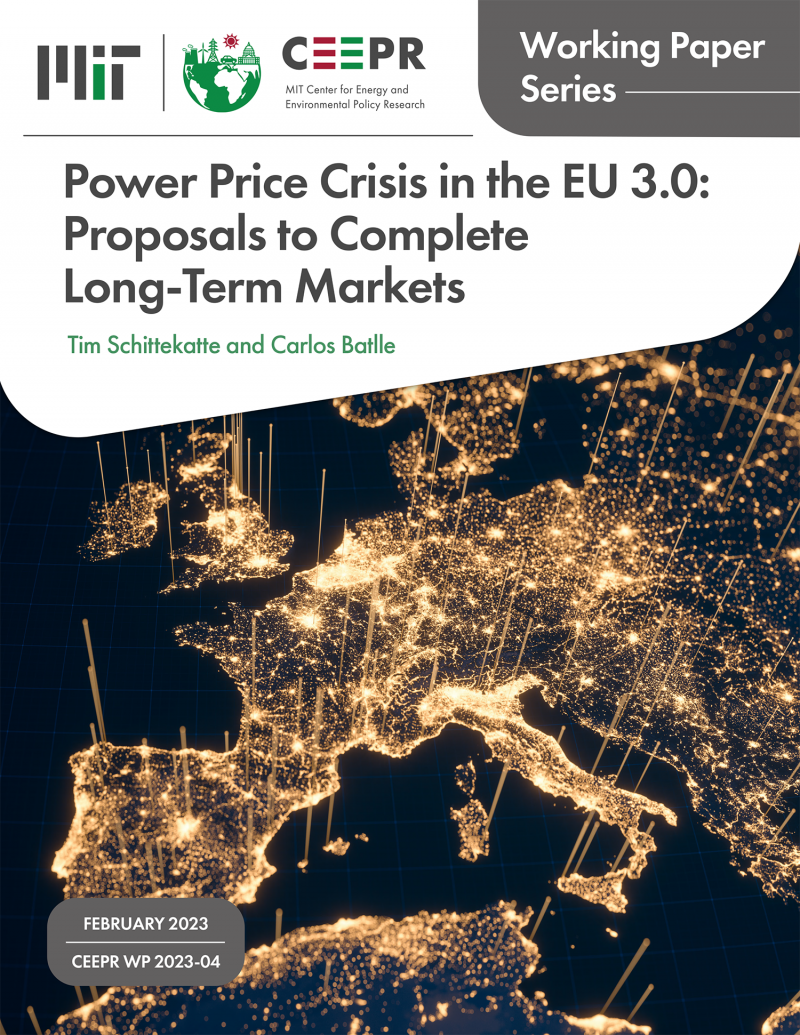Power Price Crisis in the EU 3.0: Proposals to Complete Long-Term Markets
Tim Schittekatte and Carlos Batlle
February 2023
On the 23rd of January 2023, the European Commission launched a public consultation on the reform of the EU’s electricity market design. Here we provide our perspective. We assume that the decision to intervene in the market, and the depth of the intervention, belongs to the political sphere. The scope of this paper is limited to a discussion of the implications that the different measures under considerations might have. We start by focusing on the revenue cap, mandated through the European Council Regulation published on the 6th of October 2022. We discuss that, while there are worse tools, certain implementation difficulties with the revenue cap lead to the conclusion that it is not advisable to keep it in place as a permanent feature of the market design. Further, we argue that the issue that has led to the current financial hardship is an incomplete long-term power market. In that regard, we recommend the introduction of a market maker obligation to improve liquidity in forward markets. We discuss complementary proposals that aim at completing the long-term market while fulfilling the two main objectives of the reform: facilitating the entry of renewable energy sources (RES) at the lowest system cost and limiting the impact of sustained high prices on end users’ bills. We explain why these two different objectives are less related than often thought, since they concern different groups of stakeholders with radically different risk profiles, i.e., newly connecting RES units and existing generators. Regarding the former, we argue that even if currently RES costs decrease near or below grid parity, there are still very sound arguments to keep auctions for government-backed long-term contracts in place. Contract design is important and should be reviewed to remove distortion while limiting increases in investment risk. Regarding the latter, we recommend affordability options as the best suited tool to prevent end user bills to exceed reasonable levels.



